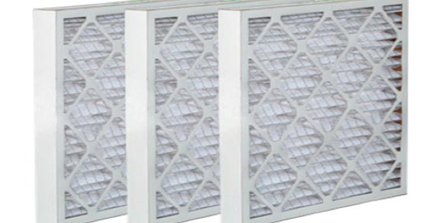If you are looking to purchase a new air filtration system for your property, there are many products with different specifications to consider. The power of these systems in removing allergens from your home can vary dramatically, so how do you do you decide which filter is appropriate for you? If you are inexperienced in buying these products, just what are the differences in air filters?
Your Filtration Needs
The type of air filtration system that you will require is likely to depend on your sensitivity to allergens and the number of allergen emitting sources that exist in or close to your property. If you are highly allergic to many types of spores and you live close to a high emitting source of pollution this can impact on the air filtration system that you need. If you live near a busy road or dusty area then if may be necessary to source a filtration system that has particular high extraction properties.
Air Filtration Efficiency
The efficiency of an air filtration is based upon the allergen particle size that it can remove from the environment. An Indicator of how efficient a system will be is provided by the products MERV score. The Minimum Efficiency Reporting Value figure is determined through tests performed by industry regulators. Air filtration systems for use domestically tend to have a MERV rating of 8 to 1. With an 8 value being achieved by high-end domestic units. Industrial models can produce a MERV rating of up to 16. With filter systems generally used in hospitals due to their HEPA air treatment systems achieving a potential MERV score of 17. An increased MERV rating for efficiency is generally achieved by removing allergens from the air whilst leaving airflows relatively un-disturbed.
Cost Of Air Filters
There are two elements that impact on the price of your air filtration system. The initial purchase price of your unit is something that has to be considered. In addition to this the long-term running costs of your air filtration system also needs to be taken into account. It may well become evident that a slightly more expensive model may provide cost savings in the future. More highly efficient models are likely to require less overall long-term maintenance, as well as providing better filtration results. It is also likely that less efficient models will have a shorter life-span and will need to be replaced more often.
Type of Air Filter Required
There are many varieties of air filtration system available to you on the market today. With a type available to suit your needs. One of the most common systems is a Pleated filter. This model is designed with a layer of filtration material incorporated in V-shaped design. This provides the filtration system with a maximized surface area that is more efficient at removing air carried pollutants.
Other popular systems include Germicidal lights. These UV based systems remove allergens off of your surfaces by treating them with Ultra-Violet light. And, Electronic air cleaners (EACs), these units remove pollutant particles from circulated air through the use of electronically generated ions. These ions attract allergens with differing electrical charges, ensuring that even smaller particles in your household are retained.
For a consultation and quote contact us call us 24/7 | Palm Beach (561) 746-3757 Treasure Coast (772) 232-1232.








